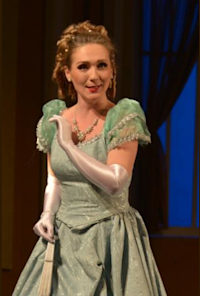


La Traviata (La traviata), Verdi
Dalīties
Hungarian Opera Cluj-Napoca (2021/22)Informācija no mākslas organizācijas (pārbaudījusi Operabase)
14 oktobris - 24 februāris 2021/22 (2 izrādes)
Apmeklējiet vietniLa traviata by Verdi, No (2021/2022), Režisēja Éva Gy Tatár, Annamária Gombár, Diriģents Szabolcs Kulcsar, Katalin G. Incze, Gergő Nagy, Opera Maghiară, Cluj-Napoca, Romania
Producents
Conductor
Stage director
Lomās
Violetta Valéry
(Violetta Valery)

(2022 feb 24)
EM(2021 okt 14)
Flora Bervoix
Annina
Alfredo Germont
BL(2022 feb 24)

(2021 okt 14)
Giorgio Germont
MF(2022 feb 24)
Gastone
(Gastone de Letorières)
Il barone Douphol
(Barone Douphol)
Il marchese d'Obigny
(Marchese d'Obigny)
Il dottor Grenvil
(Dottore Grenvil)
Giuseppe
Un domestico di Flora
(Flora's Servant)
Un commissionario
(Commissioner)
Radoša komanda
Costume designer
Choreographer
Chorus master
An employee of the director
Fellow of the choreographer
Caretaker
Faculty Director
Ansamblis
Uzziniet vairāk par komponistu
Uzziniet vairāk par muzikālo darbu
